Filter by

Memories of My Town : The Identities of Town Dwellers and Their Places in Thr…
Memories of My Town is an exploration into how town dwellers experience their environment in a complicated way. As people in urban milieus relate themselves to the environment, this takes place on many levels, where especially the time level becomes problematic. The urban buildings and settings can be looked upon as a kind of collective history, as carriers or witnesses of times past. But it is…
- Edition
- -
- ISBN/ISSN
- 9789518580198
- Collation
- 249 halaman
- Series Title
- Studia Fennica Ethnologica, 8
- Call Number
- 800 MEM

Matches : a Light Book
Through the prism of criticism, the modalities of thinking form a spectrum: on one end, systematic exposition, on the other, the fragment. It is the latter, fragmentary approach that distinguishes Matches—an investigation that does not focus on a single theme developed in all its aspects but, rather, on a constellation of themes in art, literature, philosophy, science, social and political th…
- Edition
- -
- ISBN/ISSN
- 9781950192212
- Collation
- -
- Series Title
- -
- Call Number
- 800 CHR m

A More Developed Sign : Interpreting The Work of Jesper Hoffmeyer
For more than 40 years, Jesper Hoffmeyer has been committed to the idea of developing “a semiotics of nature, or biosemiotics as he chose to call this effort, that could intelligibly explain how all the phenomena of inherent meaning and signification in living nature – from the lowest level of sign processes in unicellular organisms to the cognitive and social behavior of animals – can em…
- Edition
- -
- ISBN/ISSN
- 9789949199457
- Collation
- 334 halaman
- Series Title
- -
- Call Number
- 800 FAV m
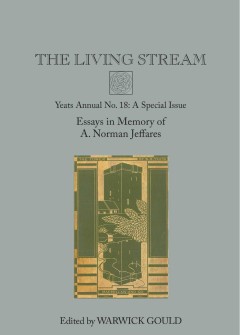
The Living Stream Yeats Annual No. 18 : A Special Issue
Memories of the man are shared by Seamus Heaney, Christopher Rush and Colin Smythe, who compiles a bibliography of Jeffares’s work. Terence Brown, Neil Corcoran, Warwick Gould, Joseph M. Hassett, Phillip L. Marcus, Ann Saddlemyer, Ronald Schuchard, Deirdre Toomey and Helen Vendler offer essays on such topics as Yeats and the Colours of Poetry, Yeats’s Shakespeare, Yeats and Seamus Heaney, L…
- Edition
- -
- ISBN/ISSN
- 9781909254374
- Collation
- 396 halaman
- Series Title
- Yeats Annual
- Call Number
- 800 LIV

The News at the Ends of the Earth : The Print Culture of Polar Exploration
From Sir John Franklin's doomed 1845 search for the Northwest Passage to early twentieth-century sprints to the South Pole, polar expeditions produced an extravagant archive of documents that are as varied as they are engaging. As the polar ice sheets melt, fragments of this archive are newly emergent. In The News at the Ends of the Earth Hester Blum examines the rich, offbeat collection of pri…
- Edition
- -
- ISBN/ISSN
- 9781478003229
- Collation
- 328 halaman
- Series Title
- -
- Call Number
- 800 BLU m
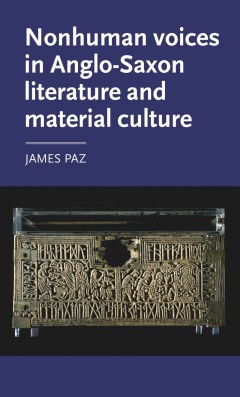
Nonhuman voices in Anglo-Saxon literature and material culture
"Anglo-Saxon ‘things’ could talk. Nonhuman voices leap out from the Exeter Book Riddles, telling us how they were made or how they behave. The Franks Casket is a box of bone that alludes to its former fate as a whale that swam aground onto the shingle, and the Ruthwell monument is a stone column that speaks as if it were living wood, or a wounded body. In this book, James Paz uncovers the v…
- Edition
- -
- ISBN/ISSN
- 9781526115997
- Collation
- 248 halaman
- Series Title
- -
- Call Number
- 800 PAZ n
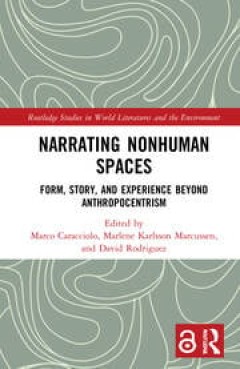
Narrating Nonhuman Spaces : Form, Story, and Experience Beyond Anthropocentrism
Recent debates about the Anthropocene have prompted a re-negotiation of the relationship between human subjectivity and nonhuman matter within a wide range of disciplines. This collection builds on the assumption that our understanding of the nonhuman world is bound up with the experience of space: thinking about and with nonhuman spaces destabilizes human-scale assumptions. Literary form affor…
- Edition
- -
- ISBN/ISSN
- 9781000441581
- Collation
- 250 halaman
- Series Title
- -
- Call Number
- 800 NAR
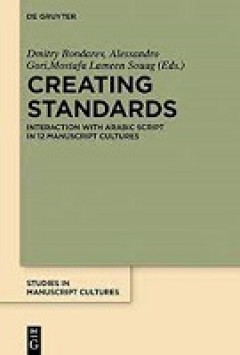
Creating Standards: Interactions with Arabic script in 12 manuscript cultures
This book deals with various aspects of standardisation by stepping outside the disciplinary and regional boundaries and providing a typological cross-cultural comparison of standardisation processes in writing traditions influenced by Arabic where different cultures, languages and scripts interact.
- Edition
- Ed. 1
- ISBN/ISSN
- 9783110635089; 9783110634983
- Collation
- 326
- Series Title
- -
- Call Number
- 400 CRE c
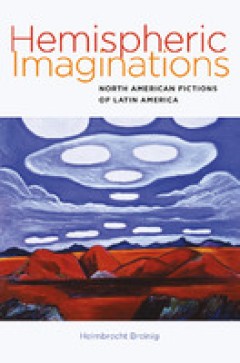
Hemispheric Imaginations: North American Fictions of Latin America
What image of Latin America have North American fiction writers created, found, or echoed, and how has the prevailing discourse about the region shaped their work? How have their writings contributed to the discursive construction of our southern neighbors, and how has the literature undermined this construction and added layers of complexity that subvert any approach based on stereotypes? Comb…
- Edition
- Ed. 1
- ISBN/ISSN
- 9781512600766
- Collation
- -
- Series Title
- Re-Mapping the Transnational: A Dartmouth Series in American Studies,
- Call Number
- 801 BRE h
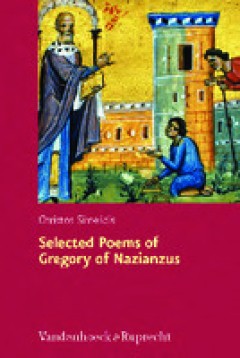
Selected Poems of Gregory of Nazianzus: I.2.17; II.1.10, 19, 32: A Critical E…
St. Gregory of Nazianzus' (ca. AD 330-390) classicizing Christian verse is the earliest Greek verse of its kind that survives in any great quantity. This is a critical edition, with introduction and commentary, of four poems (I.2.17; II.1.10, 19, 32). The commentary is primarily linguistic, but attention is paid to historical and theological matters. The poems' fate in Byzantium is also examine…
- Edition
- Ed. 1
- ISBN/ISSN
- 9783666252877
- Collation
- -
- Series Title
- Hypomnemata
- Call Number
- 801 SIM s
 Computer Science, Information & General Works
Computer Science, Information & General Works  Philosophy & Psychology
Philosophy & Psychology  Religion
Religion  Social Sciences
Social Sciences  Language
Language  Pure Science
Pure Science  Applied Sciences
Applied Sciences  Art & Recreation
Art & Recreation  Literature
Literature  History & Geography
History & Geography